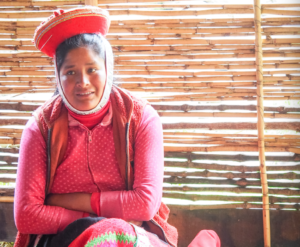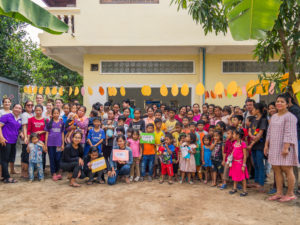This post is a continuation of an earlier post exploring our reflections on equity and empowerment from the past year.
Question #4: What role does implicit bias play in perpetuating gender inequity?
“Worth is a matter of opinion, and opinion is informed by culture. If that culture is as male biased as ours is, it can’t help but be biased against women by default.” – Caroline Criado Perez
Melinda Gates wrote a great deal about her experience working as one of the few women (if not, at times, only woman) granted access to male-dominated tech spaces in The Moment of Lift. She describes how the fear of backlash keeps women from asserting themselves as their male counterparts do in professional settings. Women in this context are not, as some may think, risk averse; rather, they are observant of workplace realities that could prevent them from succeeding in major ways. From her experience, Gates learned how important it is for men to take an active role in removing barriers to workplace equity and addressing workplace bias.
On a broad scale, it requires leaders who provide ways in which women and minorities can effectively pursue their potential – leaders who listen. Men are a critical component in changing this narrative, through action and advocacy to create spaces accommodated to and designed for women, not only men. Worldwide, women continue to carry heavy burdens, often silently, in order to carve out a path for survival. Silence of this nature is isolating, and often the result of unconscious (or implicit) biases that favor maleness as well as whiteness.
Caroline Criado Perez describes how our culture is designed by this white, male default in her book, Invisible Women. After extensive research on the topic, Perez overviews the many gender-based data gaps that tend to prevent women and minorities from equal access to education, work, and care. There is a wide misconception in our culture of meritocracy: that we can work our way up the economic ladder through hard work and perseverance by making our own opportunities. While a nice story, it is one that undermines the privilege it takes to gain access to a majority of that opportunity. The few examples that are exceptions to this rule are not enough to make a major dent in the data that indicate our culture glaringly favors white males who live by a heteronormative social code.
Data is crucial in informing us so we can make the private, public, and so we can adjust policies to correctly address need. For instance, males occupy an overwhelming percentage of documented violence – 96% – and yet, when we examine the data, we see legislation that protects women against partner violence is barely, or inconsistently, enforced. Keeping these instances private silences women; it keeps them forgettable, ignorable, and dispensable. Because our culture values the male default and regards it as objective truth, it pushes women and minorities into a category of subjective other – into the margins. What we take to be true as a society is, in essence, based on a limited perspective that presents an incomplete picture of reality.
To address these biases, our guiding social, cultural, and ethical principles must be questioned regardless of the institutions or traditions that surround them because, as Perez explains, “tradition without discussion kills moral progress.” Leaning in to existing structures as a means of dismantling inequity will not create real channels of liberation, ones that address underlying causes of that inequity. Outdated norms give us a culture with ethical blindspots. When left unexamined, they cause us to make the same mistakes over and over again.

Marta, member of a weaving cooperative in Huilloc, Peru
Question #5: What is the right direction for women’s empowerment programs, and where does WECO fit in?
“The primary causes of poverty and illness are the cultural, financial, and legal restrictions that block what women can do, and think they can do – for themselves and their children.” – Melinda Gates
We know unequal wealth distribution leaves women and girls more vulnerable to poverty and denies them resources to cope: education, income earnings, banking options and credit, control of assets, and decision-making power. We know, worldwide, women and girls are more likely to stop education, do unpaid labor, eat less, and go without healthcare, especially during times of economic hardship. Addressing the harsh conditions women and girls face takes more than relying on only programmatic solutions and distribution of resources; it takes an approach of authenticity and sensitivity to the internal effects such realities have on them as well.
Gates describes her fundamental belief belief in education to help women thrive in society by providing them with more options to care for themselves and their families. This is undeniably true; yet given what we know about justice, if this doesn’t go along with systems change on a larger scale, we will continue to confront the same inequities year after year. We will need to prioritize making real change for communities and not just treating a symptom, otherwise we will continue to push women to the margins. To fully arrive to ‘moments of lift,’ there is relational work that must be done first, in order to set the foundation for trust. In many cases, this is hard won due to global imbalances of wealth and a long history of colonialism in lower-income countries. These are traditions global practitioners will need to take caution to not perpetuate via their own implicit biases and sense of moral authority.
In order to fully embrace the spirit of equity, women have to feel seen, heard, and valued in ways that resonate with them as individuals and as a collective. Empowerment programs should pursue accurate representations of the daily realities for underserved women, which means incorporating their voices into the process. It means looking for the cracks in history and finding who has been omitted, disempowered, or disadvantaged and demonstrating to these communities patience, understanding, and support.
With WECO, we want to go into the new year with open hearts as well as open eyes. Like Darren Walker, we believe meeting the people we support face to face brings more equity and empathy to our work because it allows us to better understand the challenges and solutions for communities. When we get outside of our comfort zone and move closer to the causes we support, we deepen our perspective. Proximity to communities begets empathizing with them because it moves us away from abstract sympathy into concretely seeing problems from the perspective of the people who experience them. It helps us avoid making erroneous judgements or stereotypes by engaging our senses to experience with and learn from communities. In doing so, we engage in a more democratic version of philanthropy.

WECO and the WRC in 2018
When thinking of the future of women’s empowerment, we can channel Gates’ philosophy of questioning what we know now in a deeper way than we knew before. In terms of how we work to empower communities abroad, we have seen how quality organizations that reach the most vulnerable communities struggle to maintain day-to-day operations, and how often the lack of funding holds them back from achieving greater impact. How well we as an organization can gather resources dictates how much we can support local communities. Ultimately this means we’ll have to prioritize seeking out and nurturing relationships with people who have a similar philanthropic mission and help them understand the value in grassroots giving and volunteering.
With our work, we strive to create levels of connection for participating in global development so that volunteers can unfold their own process of discovering the power of generosity, community, and social change – to encourage people to look outside of “me” and into “us.” We want to capture a snapshot of how powerful giving back to underserved communities can be. We know firsthand the fulfillment that comes from working to spread opportunities and resources to others (those we often take for granted); and we also know it takes courage and consistent improvement to do so in a complex world such as ours. The lessons we’ve learned and continue to learn will hone us into better practitioners of equity work.
Bigger picture, it’s encouraging ourselves and those around us to become, as Michelle Obama said, by living in the world as it is, flawed and imperfect, while simultaneously looking beyond it through critical thinking and empathetic action. Such vision is necessary in order for us to propel forward as individuals and as a collective whole. It may be challenging to consider how we are never complete products and will always have room for improvement; but on the flip side, there will always be something to look forward to, something greater into which we can evolve.
Recommended Reads and Resources:
- Becoming by Michelle Obama
- Center for Effective Philanthropy (CEP) Reports: How Major Individual Givers Can Best Support Nonprofits and Lessons from Those Who Have Started Major Grantmaking Organizations
- Co-Impact’s Handbook on partnership, grantmaking, governance, and systems change
- Factfulness by Hans Rosling
- From Generosity to Justice by Darren Walker
- Good and Mad by Rebecca Traister
- Invisible Women by Caroline Criado Perez
- Men Explain Things To Me by Rebecca Solnit
- Open City by Teju Cole
- The Moment of Lift by Melinda Gates
- White Fragility by Robin Diangelo
- Winners Take All by Anand Giridharadas
